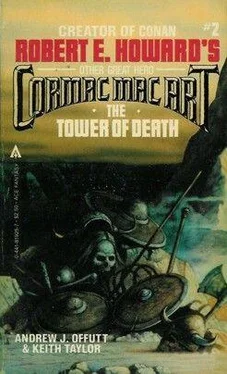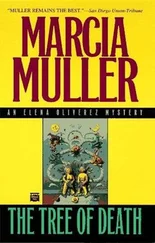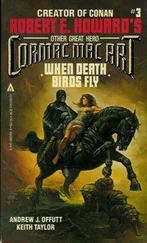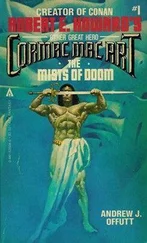Andrew Offutt - The Tower of Death
Здесь есть возможность читать онлайн «Andrew Offutt - The Tower of Death» весь текст электронной книги совершенно бесплатно (целиком полную версию без сокращений). В некоторых случаях можно слушать аудио, скачать через торрент в формате fb2 и присутствует краткое содержание. Жанр: Фэнтези, на английском языке. Описание произведения, (предисловие) а так же отзывы посетителей доступны на портале библиотеки ЛибКат.
- Название:The Tower of Death
- Автор:
- Жанр:
- Год:неизвестен
- ISBN:нет данных
- Рейтинг книги:3 / 5. Голосов: 1
-
Избранное:Добавить в избранное
- Отзывы:
-
Ваша оценка:
- 60
- 1
- 2
- 3
- 4
- 5
The Tower of Death: краткое содержание, описание и аннотация
Предлагаем к чтению аннотацию, описание, краткое содержание или предисловие (зависит от того, что написал сам автор книги «The Tower of Death»). Если вы не нашли необходимую информацию о книге — напишите в комментариях, мы постараемся отыскать её.
The Tower of Death — читать онлайн бесплатно полную книгу (весь текст) целиком
Ниже представлен текст книги, разбитый по страницам. Система сохранения места последней прочитанной страницы, позволяет с удобством читать онлайн бесплатно книгу «The Tower of Death», без необходимости каждый раз заново искать на чём Вы остановились. Поставьте закладку, и сможете в любой момент перейти на страницу, на которой закончили чтение.
Интервал:
Закладка:
The ax flashed through the air, lofting high to arc well over the heads of the Suevic warriors. The seven-pound chunk of sharpened steel glinted and winked in the sun as it flew, turning slowly, and turning again…
With a frightful slamming crash like unto Loki bursting his chains, the Danish ax smashed into the target. At its mighty impact, a couple of feet above the ground, another ax fell. Obviously it had not been well imbedded; Wulfhere’s ax clung and its haft stood forth like the ridgepole of a barn. The heavy timber slab vibrated from top to bottom and a brace-stone moved.
Bedlam came swooping down onto the practice field.
Amid the commotion Wulfhere muttered, “Shit. See how low I struck! Either I misgauged or I’m growing weak with my years.”
Cormac said nothing. He was as impressed as the Galicians. Some embarrassment and laughter followed, for them; a young weapon-man ran, topknot bobbing, to pull the ax free of the target-and had to lay hold of the haft with both hands while setting a foot against the slabbish target. His comrades laughed, called comments and suggestions and turning, invited the huge man from the far north to join them.
A grinning Wulfhere did. He reached their line as the well-muscled lad, having at last succeeded in wrenching loose the prodigious ax, brought it back to him.
“Thanks, youngster,” Wulfhere looked about at the others and grinned. “Mayhap ye should ha’ left it for these big-mouths to try their strength also!”
The Suevic troopers laughed in the good humoured appreciation of weapon-men for a superb one, and excitedly babbled that he should join them now, and later at a beast fight at which some rowdy local wenches were meeting them. A grinning Wulfhere observed that they seemed to be planning his kind of afternoon.
Cormac shook his head. We’re here to see to the building of ships and the training of crew, and what does that man-mountain do?-starts in to make ax-throwers of them! It was pleasant, though, to know that Wulfhere would not lack entertainment. He’d a way of finding drastic remedies for his own boredom. Once over in Britain he’d forced a bishop to marry a thieving smith to a heifer, and burned the church when he found the ceremony too tame.
The Gael turned smiling to enter the king’s hall.
Acting on sudden thought, Cormac turned, knowing he’d find the heaven-blue eyes of Eurica king-sister watching the rugged wolfishness of his walk. He bowed to her as might a court-raised fop.
Then he turned again and passed through the dark oblong gape that was the hall’s entry, seen from the sunlit outside. Wondering why she was watching, what she thought of him or might be planning, he strolled inside.
He stood in King Veremund’s eating hall while his eyes accustomed themselves to the shade. The great hall formed two levels. The lower, with its long trench for fire and its double row of pillars, was public: the scene of feasts, weddings, and all noble gatherings. Above, upheld by the pillars of carven wood, a timbered gallery ran around three sides of the hail. Doors led off it to bedchambers. That one of those had been assigned to his and Wulfhere’s use was a measure of the impression they had made here. True, the king’s companions had quarters elsewhere, and lovers-and some of them of course had wives. But when they nighted in the great hall, they slept on benches.
Two pirates from oversea had been granted con siderable honour, Cormac thought, as he ascended to their chamber.
Here was neither Rome nor Eirrin. The room was a rude wooden box with a door. Woven hangings softened the walls and two dyed sheepskin rugs lay amid the rushes on the floor. The great bed was piled with fur covers. It was most tempting, and Cormac wanted to fling himself down with sighs of content. No; with ingrained suspicion he first hurled off some of the covers and ran exploring hands over the rest. Beds could hide a number of nasty surprises, such as poisoned daggers fixed upright to the frame. Cormac checked. A king had no need of such subtleties, but others might; whether they worked or no, they could sow distrust betwixt the king and his outland guests. Was foregone and certain, aye and inevitable that there would be factions to contend with. In all the history of the world, Cormac knew, there had never existed a kingdom that lacked them.
Here, at least, were no bed-hidden traps.
Thoughts of Eurica slipped from his mind. He sprawled, with sinewy fingers unterlocked behind his black-shocked head, for a nap. His brain was aroused, he discovered, and without trying he cogitated on the menace to the tower-and to ships approaching this coast-and how best to attack the problem.
The door opened softly, and Cormac bethought him of his nearby sword.
The figure that entered presented no menace. She was clad as he had foretold. Her thick brown hair was brushed till it shone, all coiled on her head bedecked with combs of enamelled white bronze. Fit for a provincial Roman lady was her long gown, in colour a dark rich red-brown like her hair. Broidered gold stiffened its hem and a golden belt cinctured it. From her shoulders swept an enveloping sky-blue mantle or paludamentum , its shimmering line the hue of fresh cream. The change in her was enough to take a man’s breath.
“It’s hardly yourself I might have expected,” mac Art said.
“Why?” Clodia asked. She was not trembling; the firm-held tautness of her body within gown and mantle was that of tremors repressed. The one short word was all she trusted herself to utter steadily. Taxing had it been to play-to be-the noble lady in misfortune, before the shrewd king. The tiring-wenches who bathed and dressed and coiffed her, with their chatter and questions and thinly-disguised malice, had been worse. She strove for controlled speech.
“Why did you do it?”
“What?”
“Cha, Cormac! Introduce me as a lady!”
He essayed a supine shrug. “Ye had no pleasant time aboard Raven , or ashore this morning either,” he said, though he was stating fact, in no wise making apology.
She made a jerky shrug like a spasm. “You stood my friend when it mattered. It was… fortunate, that I did not have to say much.”
“Sure and it’s up to yourself what ye be doing with your new station now-my lady.”
“I’ll never make them believe it.” She was starting to tremble.
Cormac said naught. He agreed.
“It was sweet of you, Cormac. You’d been treating me so-”
“Gods, woman! Your tongue! The gods themselves shudder at thought of a sweet Cormac!”
“Y-you-” She was trembling openly. “I see that you ha-andle compliments about as well as you would a di-distaff.”
“Say no more, then. Be ye weary?”
“Terrified! Drained! I’ve been afraid so much as to speak- Cormac, for God’s love, hold me! ”
There was naught of the contrived about the way she toppled forward, else it had been more graceful. The impact of her was substantial and alive. Cormac grunted, and held. Sobs hit Clodia then with a rending power that twisted all her body, torn as with hooks from her lungs and very bowels. She wept for her father, perhaps, enduring torture for his avarice or dead and glad of it. For all her hanging on throughout the voyage here, and all the strain with king and the women who attired her as the noblewoman. For herself she wept, and even for Cormac, and the world of slaying and treachery that wrapped them both about.
Art’s son of Connacht held her, the while she groaned and bleated; she was no silent griever, Clodia of Nantes.
Like the storms of Treachery Bay, it passed, to leave a great quiet and wreckage untidily adrift. A comb had come out of her hair and the other hung awry so that her brown locks were ravelling down onto Cormac’s breast. She had made a swamp of his shoulder.
Читать дальшеИнтервал:
Закладка:
Похожие книги на «The Tower of Death»
Представляем Вашему вниманию похожие книги на «The Tower of Death» списком для выбора. Мы отобрали схожую по названию и смыслу литературу в надежде предоставить читателям больше вариантов отыскать новые, интересные, ещё непрочитанные произведения.
Обсуждение, отзывы о книге «The Tower of Death» и просто собственные мнения читателей. Оставьте ваши комментарии, напишите, что Вы думаете о произведении, его смысле или главных героях. Укажите что конкретно понравилось, а что нет, и почему Вы так считаете.












